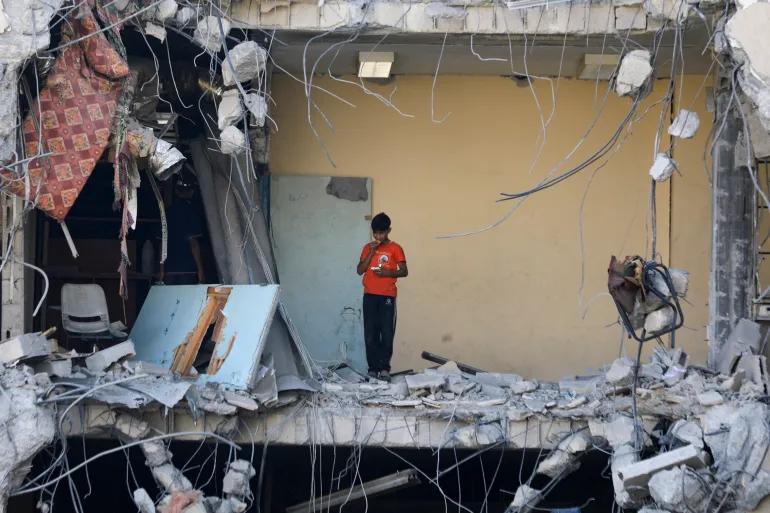A Palestinian boy stands in the remains of a building in the Gaza city
July 16—The United Nations Relief and Works Agency for Palestine Refugees (UNRWA) estimates that clearing the Gaza Strip of the rubble caused by Israel’s latest war on the Palestinian enclave will take 15 years.
The agency on Monday said the cleanup would require the removal of 40 million tonnes of rubble, citing an assessment by the UN Environment Programme (UNEP).
“Debris poses a deadly threat for people in the Gaza Strip as it can contain unexploded ordnance and harmful substances,” UNRWA said, adding that its removal would require more than 100 trucks and cost more than $500m.
The UNEP said some of the debris is contaminated with asbestos, a toxic mineral that causes lung diseases, including cancer. It added that human remains are buried in a vast quantity of building debris.
By comparison, during the 2014 Israel-Hamas war in Gaza, about 2.4 million tonnes of debris were removed.
The UNEP estimated that the amount of debris in the Gaza Strip is “13 times more than the combined sum of all debris generated by other conflicts in Gaza since 2008”.
Meanwhile hardline Israeli Finance Minister, Bezalel Smotrich, called on the prime minister to annex the occupied West Bank if the International Court of Justice (ICJ) rules Israeli settlements are illegal this week.
Smotrich told reporters, “no one will move the people of Israel from their land”, the Times of Israel quoted him as saying on Monday.
The UN’s top court is expected to deliver a non-binding ruling on the legal ramifications of Israel’s occupation of Palestinian territories on Friday.
“I hereby call on Prime Minister Benjamin Netanyahu – if the International Court of Justice in The Hague does decide that the settlement enterprise is illegal – respond to them with a historic decision of applying sovereignty to the territories of the homeland,” said Smotrich.
The far-right minister also promised to “thwart the establishment of a Palestinian state through massive construction, regulating settlements, building roads and other measures in the field” – all moves illegal under international law.
Fifty-two countries presented arguments at the ICJ, also known as the World Court, about the legal consequences of Israel’s actions in the occupied territories in February, after the UN General Assembly asked it in 2022 for an advisory opinion.



